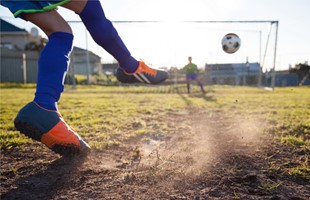Survey: Children, Sport and COVID-19
16 Dec 2021
Author - Centre for Sport and Human Rights
‘Children, Sport and COVID-19’, is a survey led by the Centre for Sport and Human Rights which aimed to learn from children about the impact of the COVID-19 pandemic on their sporting activities. Following a process convened by the Centre in 2020, whereby experts shared their concerns related to the impact of COVID on children engaged in sport, a Report was produced - An Overview of the Sport-Related Impacts of the Covid-19 Pandemic on Children. One of the calls to action of the report was that “stakeholders should engage with children living in a variety of contexts to learn their perceptions.” As a result, this survey intended to bring together a wide group of people, and targeted sport bodies and sport for development organisations to disseminate the survey among children they work with.
The survey was available from December 2020 to April 2021, in six languages – English, Spanish, French, Portuguese, Lao and Vietnamese. Although the aim was to reach a broad range of children, including professional athletes, members of school teams, those living in the Global South, those in humanitarian situations, those with disabilities, LGBTQI+, and those living in rural communities, the survey received a much higher number of respondents from Europe and those that identified themselves as males. For future initiatives, greater effort is required to hear from those who are difficult to reach, in order to overcome obstacles such as a lack of access to internet or mobile devices. This would help to ensure that results are representative of the global impact.
The Centre considered results still relevant to disaggregate information per gender and per content, using percentages to compare data.
Key findings include:
- Around 70% of children that were engaged in sport are still playing
- However, 68% of them are playing less than before the pandemic
- When asked how much their ability to train has been affected by the pandemic, on a scale from 1 (not at all) to 10 (completely), 61.2% of children marked 7 or higher
- 80.4% of children feel impacted (physically, mentally/emotionally or both) by the fact they can no longer play sport in the same way that they used to.



